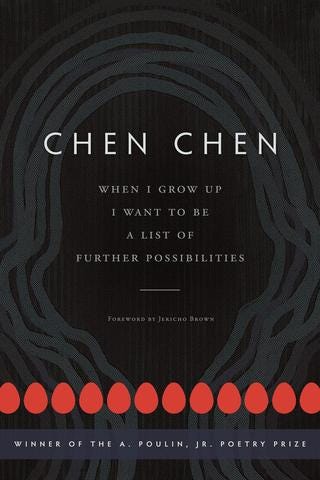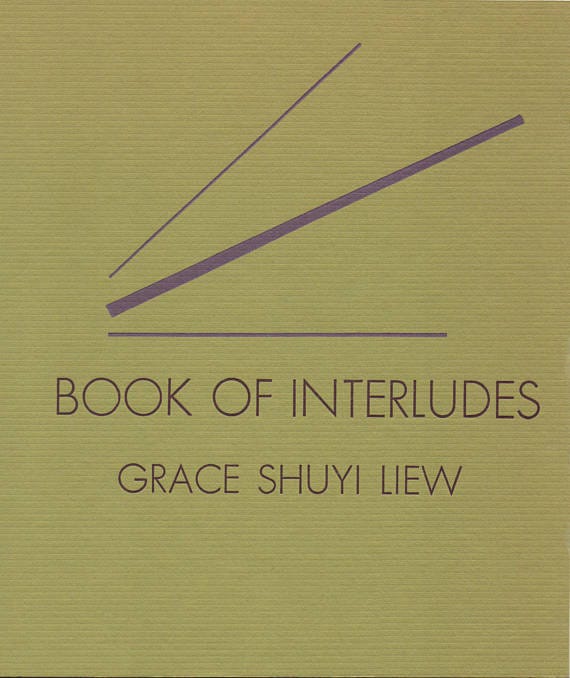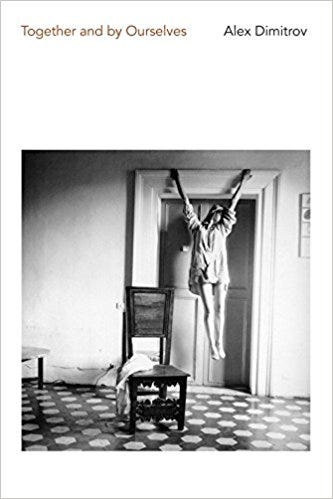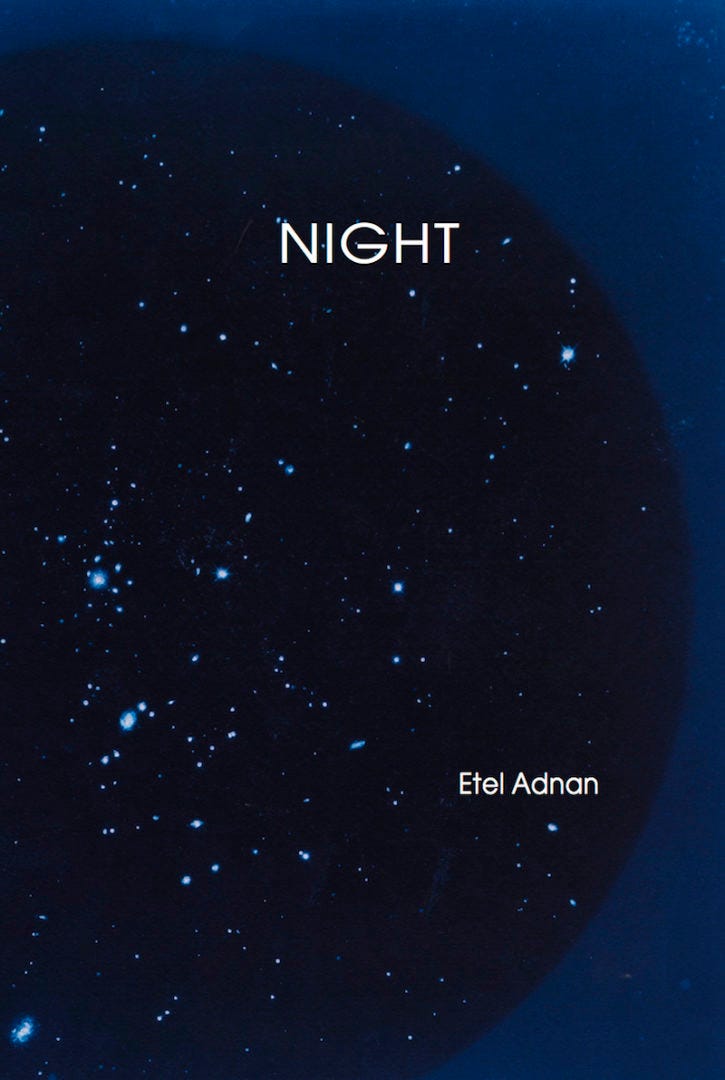
Last week I shared four of my favorite queer poetry books to come out this past year, from Ocean Vuong, Christopher/Loma Soto, Grace Dunham, and Alok Vaid-Menon. Since then you’ve run out and grabbed these fabulous books…but let’s be real, your appetite for queer poetry is insatiable. And you’re already hungry for more!
Well, lucky for you, we’re back with four more recommendations. Just in time for your Pride Weekend March. Take these poets with you into the streets!
1. When I Grow up I Want to Be a List of Further Possibilities by Chen Chen

Chen Chen’s marvelous debut collection is playful and full of wonder. Every poem sparkles with humor, curiosity, and relatable emotional content. This is a poet who declares, “My job is to trick adults // into knowing they have / hearts… My job is to trick // myself into believing there are new ways / to find impossible honey.” And he achieves this lofty goal, diving into language to craft a compelling portrait of what it means to be alive.
Chen is confident in his own gay sexuality — confirming on page one that “I am not the heterosexual neat freak my mother raised me to be” — but struggles to obtain his mother’s blessing, or at least acceptance. In one poem, Chen’s mom
almost struck down my door, asking who
was on the phone…
some boy wasn’t it,
a sick boy spreading his sick musky spring,
American spring, beastly goo of wrong wanting.
But while Chen’s coming out disappoints his mom, it sets a precedent for the delicious rule reversals that enable his poetic imagination, his feats of engineering. Outside the specter of expectations, Chen becomes “one boy flying, flinging himself in an impossible direction, a future outside the photograph — ” He leapfrogs toward “the warm illumination of a horizon imbued with potentiality,” to invoke the late queer theorist José Estabon-Muñoz.
To a friend’s accusation that All you write about is being gay or Chinese, he imagines responding: “All you write about is being white or an asshole.” Or alternatively: “No, I already write about everything — & everything is salt, noise, struggle, air, carrying kisses, leaving, myth, popcorn, mothers, bad habits, questions.” Chen’s own list is better than any other description of the magic of his poetry.
2. Book of Interludes by Grace Shuyi Liew

An interlude is a piece to fill the space in between, an unsettled middle sliver. Grace Shuyi Liew inscribes the body as a book of interludes, which is to say she portrays her body in transit, constantly refusing edges: “Emerging is one of your favorite things to do. // You could walk up and out of a subway station forever.” Fittingly, the poems in this collection travel somewhere in between essay and lyric — queering genre to notate the disloyal body, stumbling dissatisfied.
Across Liew’s poems, the narrator wanders Chinatown in New York, the “mirrored geography” of lesbian sex, an under-bridge party in Berlin. Non-committal multi-national meandering, just like the equivocating strings of self-interrupting parentheticals riddling the poems. There’s the typical marks of dislocation, too: drunken hunger, melancholia, FOMO, isolation, and, most memorably, “postcolonial tan lines.”
Necessarily, then, every word becomes bodily. Liew depends on language like “a raft, overboard” to soothe the ache of other-ness. But words are not enough — they need “a sustainable container.” The results are raw and urgent. Here’s an excerpt from my favorite poem in the collection, “Interlude: For Bodies, Passing Slowly in the Night”:
You write everything down, write it until it no longer wants to be
written, until the suture lines
expose themselves like raw belly like sureness
Liew shows that poetry is a matter of belonging, ownership. Her words portray the body at the intersection of post-colonialism and queer memoir: “The right to occupy a body, / Any body, / Gives itself to no one / Else. My / Cunt meanwhile gulps like a Blowfish, boat salted with / Pretend poison.”
3. Together and By Ourselves by Alex Dimitrov

From one half of Twitter’s favorite Astro Poets comes a vulnerable and existential poetry collection, puzzling out the interrelation of intimacy and loneliness. Alex Dimitrov pokes at the fabric of everyday life, celebrity culture, and nightlife with the urgent, gripping questions that keep us all up at night. “Is it lucky to live or embarrassing?” Or: “What do we want when we ruin each other?”
These metaphysical questions don’t come with easy answers; instead, Dimitrov evokes Donne-like paradoxes. To wit: “Every lover is a stranger, every stranger a lover all over again” and “Finally knowing you, I know I cannot know you.” (Indeed, Dimitrov quotes Donne in one poem: “We are not just those persons which we were.”) In turning to paradox, Dimitrov takes a cue from queer theory, which rejects either/or binaries in favor of messier both/and explanations that are truer to the messiness of lived experience.
Like many pop songs, Dimitrov’s poems address an elusive and porous you (Ashbery’s parlor trick).
You ask why I’m thinking of death
but I’m thinking of you and it’s fleeting.
We were terrible, unrelenting and everywhere then.
All I know is I can’t stop writing about people.
So much happened. I can’t stop writing about love.
Reading these poems, it is easy for me to locate myself in the space of you. To feel the illusion of intimacy. As if the poem is inside me, you, all of us. Dimitrov has experimented before with new ways of reaching out to readers; in a multimedia bedroom poetry project called “Night Call,” he read poems to strangers in bed and online. Poetry is a physical gesture; words reaching out across the page to touch skin.
4. Night by Etel Adnan

I’ve written before about Night, a slow-breathing meditative stunner that queerly orchestrates the body in position with the universe. Part philosophy treatise and part lyric, Etel Adnan’s collection doubles as a primer toward queer cosmology, “incursions into the inner nights where the knowledge of the void is knowledge of fullness.” There is a Sapphic joy inherent in Adnan’s discovery of plenitude in shadows, crevices and other holes.
Queer eco-criticism grapples with the ideological undertones to claims of the natural/unnatural. To shift away from these binaries, Adnan “withdrew into blurred definitions.” In a reversal, she dismisses attacks on “unnatural” sexuality by finding natural correspondents to her own body. “My own rhythm: a winter ending, mountains dissolving, waters on the rise.” And, going the other way, “But what about the ocean’s intensity that echoes our own, the fever in cold weather, the soul’s descent?” The purportedly “unnatural” mirrored lesbian attraction builds to a series of orgasmic climaxes in the ocean’s movements:
Coming, coming, and coming again, the tides repeat… For now, it’s the return and the return of the ocean repeating itself over itself, water on water, movement over movement, waves over waves, breathing following breathing, affirmation coming over affirmation.
Tides, yes, breathing, love being a tide coming, and receding, a pendular insanity, as impatient in its regularity as this gaze on the inbuilt instability of liquid metals.
Her landscape of night is an intentionally queer setting. She declares, for instance, that “night is a subtle rain, wetting body and soul.” Night is sexualized, if not quite personified: “night of sovereignty / night of ecstasy / night of proximity.” In the bed of these pages, the poet joins the celestial body of the universe.
4 More LGBTQ Poets to Queer Your Pride Month [Part 2] was originally published in Anomaly on Medium, where people are continuing the conversation by highlighting and responding to this story.
